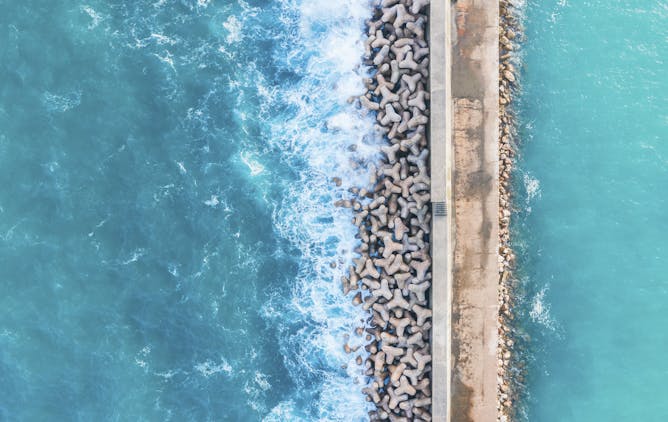|
Ever since the Abbott government killed the Gillard government’s fledgling carbon price a decade ago, talk of charging for carbon emissions has been off the table, politically.
But ask Australia’s leading economists what can be done to get Australia back on the road to net zero (a transition that is looking “difficult”, according to Energy Minister Chris Bowen) and six out of ten will back a Gillard-style carbon price.
The leading economists were selected by their peers on the central council of the Economics Society of Australia for their expertise in fields including modelling and public policy. Today, they offer their opinions on a range of questions related to climate policy.
Some of the panel said that if it remains politically infeasible to reintroduce an explicit carbon price, it should be done by stealth, by widening the existing so-called safeguards mechanism that applies only to large polluters by giving it more bite and extending it to the entire economy.
Like Bowen, they are worried Australia isn’t on track to meet its emission reduction targets, and they’ve other ideas including “green tariffs” on imported goods made with untaxed emissions, and taxing exports of Australian coal.
Meanwhile, in the latest in our Getting to Zero series, former ACCC chair Rod Sims offers a slice of optimism: a vision of Australia as a green energy superpower, exporting sustainably processed iron, fertiliser and other products to the world.
In doing so, he argues, Australia could not only cut our own domestic emissions (which, as the naysayers never tire of pointing out, are a paltry fraction of the global total), but more importantly could also clean up our export emissions and kickstart a range of lucrative green heavy industries – all while reducing our power prices to some of the lowest in the world.
|

|
Peter Martin
Economics Editor
|
|

Peter Martin, Crawford School of Public Policy, Australian National University
30 of the 50 economists surveyed want a carbon price of the kind introduced by Julia Gillard in 2012 and abolished by Tony Abbott in 2014. Several say there’s little “time left to act seriously”.
|

Rod Sims, Crawford School of Public Policy, Australian National University
Australia has a massive opportunity to reduce global emissions by as much as 9%, all while renewing its heavy industries and economy. But to seize the opportunity, government needs to move fast.
|

Rebecca Louise Nelson, The University of Melbourne; Martine Maron, The University of Queensland
Australia has a once-in-a-decade opportunity to fix environmental law. A new Wentworth Group report says the cumulative impacts from multiple projects must be considered.
|

Jessica Genauer, Flinders University
Countries like Egypt, Lebanon, Syria and Qatar all have a stake in the outcome of the war – but none want to be actively involved in fighting.
|

Andrew Norton, Australian National University
University enrolments, research output and revenue tripled or more in the three decades to 2019. This growth brought benefits as well as problems.
|

Jake Newman-Martin, Curtin University; Alison Blyth, Curtin University; Kenny Travouillon, Western Australian Museum; Milo Barham, Curtin University; Natalie Warburton, Murdoch University
We found three previously unknown species of mulgaras hiding in museum collections – but all three have been driven to extinction since European colonisation of Australia.
|

Ritodhi Chakraborty, University of Canterbury; Claire Burgess, University of Canterbury
Preliminary findings show that managed retreat, structural flood protection and climate-resilient development projects are most at risk of maladaptation.
|

Peter Breadon, Grattan Institute; Lachlan Fox, Grattan Institute
Eating too much salt is bad for our health. Governments and food manufacturers have a big role to play in reducing the salt content of Australians’ diets.
|

Anthony Uhlmann, Western Sydney University
Gabrielle Carey’s last book, about her beloved James Joyce, also includes her own life as a reader, and makes us see things that hurt and delight her.
|
Politics + Society
|
-
Alexander Gillespie, University of Waikato; Robert G. Patman, University of Otago
Liberal democracies need to work with the countries in the Middle East to build a long-term solution to the ongoing Israel-Gaza crisis.
-
Clive Thompson, University of Cape Town
A conflict resolution expert – and rugby fan – explains how the game can restore spectacle and avoid farcical and dangerous mismatches due to players being sent off.
|
|
Health + Medicine
|
-
Deborah Lupton, UNSW Sydney
Fixating on sleep can make your sleep worse. But some people crave the connection online sleep communities provide.
|
|
Science + Technology
|
-
Michelle Langley, Griffith University; Adam Brumm, Griffith University; Adhi Oktaviana, Griffith University; Akin Duli, Universitas Hasanuddin; Basran Burhan, Griffith University
Archaeologists have discovered two 7,000-year-old tiger shark teeth that were once part of ritual or fighting blades on the Indonesian island of Sulawesi.
|
|
Environment + Energy
|
-
Rachael Wallis, University of Southern Queensland
Australia has the world’s biggest carbon footprint from fashion. This is one area where changing our personal clothing choices can make a big difference, just as it did in the second world war.
|
|
| |
|
|
|
|
| |
| |

|
| |
| |
| |
Featured Events, Courses & Podcasts
|
View all
|
|
1 January 2023 - 7 October 2026
•
|

|
7 November 2023
•
Sandy Bay
|

|
9 November 2023
•
Randwick
|

|
29 November 2023
•
Online Event
|

|
|
|
|
| |
| |
| |
| |
| |
|
|